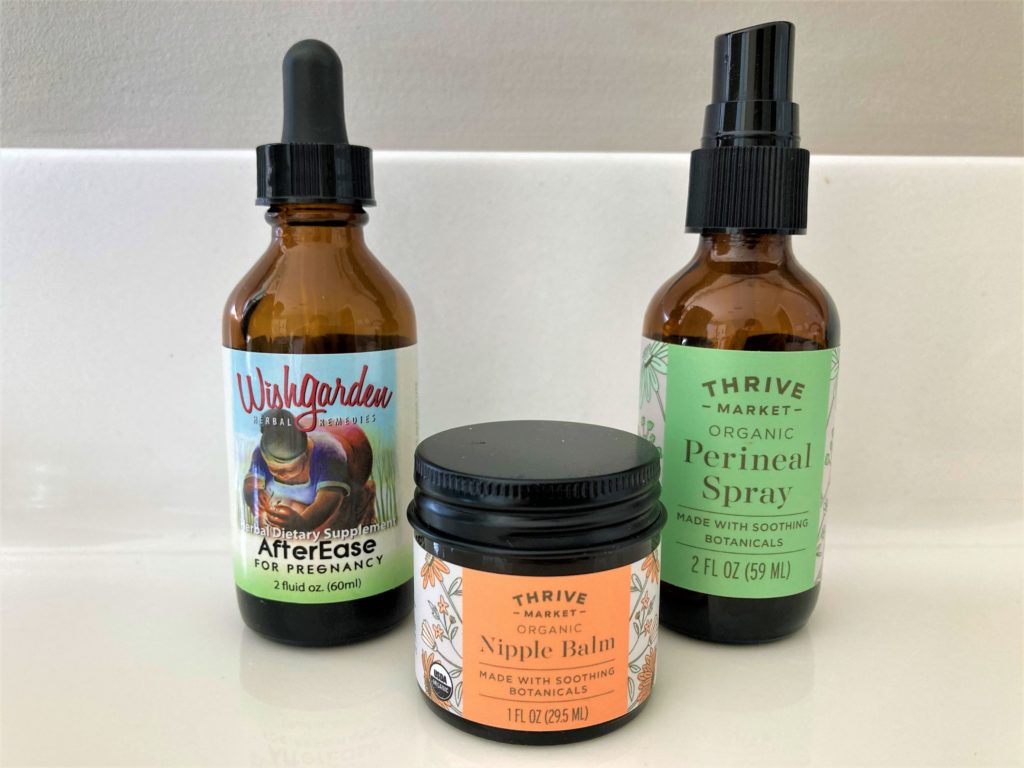
During Pregnancy: Nourish Your Body
During the entire pregnancy, I was very diligent about my nutrition. This included a variety of nutrient-dense whole foods, specific supplements, and stress reduction practices.
- Nutrient-dense foods: Some of the foods I focused on were:
- Eggs – rich source of choline, which supports brain development
- Blueberries – fantastic source of antioxidants that support cognition
- Leafy greens – packed with vitamins & minerals
- Salmon – best source of omega 3 fatty acids, along with a hearty dose of protein
- Sweet potatoes & carrots – healthy complex carbohydrates that are packed with beta carotene, a vitamin A precursor (you should not consume too much vitamin A during pregnancy, but you can have unlimited beta carotene, which your body will convert to vitamin A as needed!)
- Oats – great source of iron & selenium (critical for baby’s development) and fiber, which keeps Mama regular, despite the cramped quarters in there! (***be sure to consume vitamin C with oatmeal in order to absorb the plant-based iron… think: oranges, strawberries!)
- Whole grains, in the form of sprouted Ezekiel bread and quinoa – which provide B vitamins for energy and metabolism support, as well as balanced blood sugar levels
- Grass-fed, organic poultry & meat – help to meet protein requirements while supplying omega 3 fatty acids for baby’s developing nervous system
- Organic yogurt or kefir – provide food-based probiotics, calcium, and protein
- Sauerkraut – provides food-based probiotics, fiber, and tons of nutrients
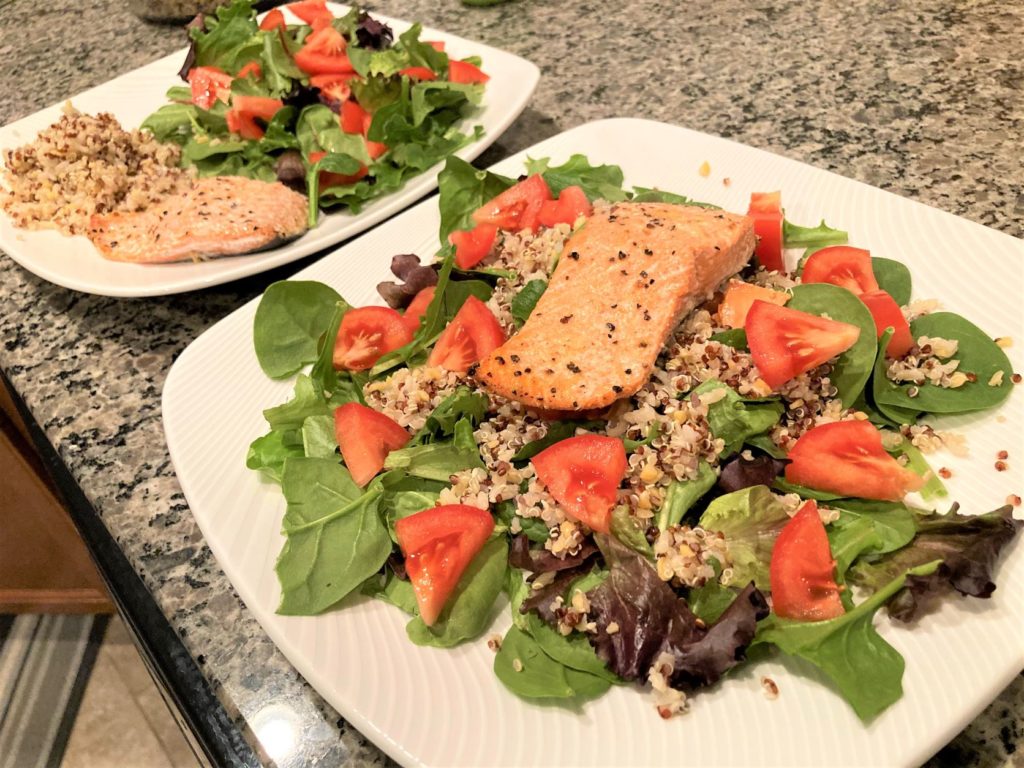
Prenatal Supplements:
- Prenatal Multivitamin: The nutrients in this tablet come from food (and are NOT synthetically made). This means it contains folate, not folic acid. It’s a pretty large tablet, so my routine has been to crush it up in a mortar & pestle and add it to a dollop of applesauce after I finish my morning oatmeal! Buy on Amazon: Garden of Life Prenatal Once Daily
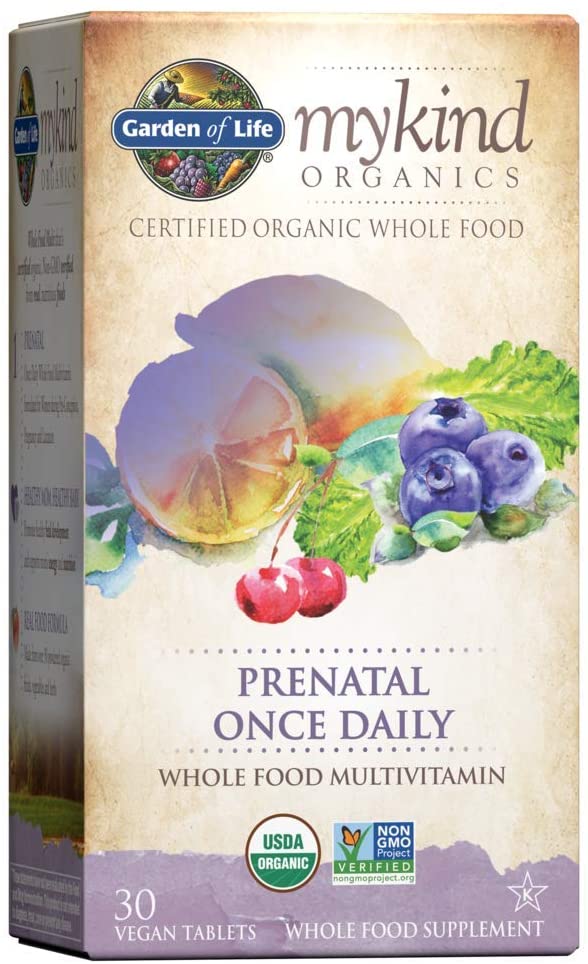
Omega 3: This Prenatal supplement contains the perfect ratio of DHA/EPA for pregnancy, as well as during breastfeeding. There is no fishy aftertaste and it is easy-to-swallow. It also contains extra vitamin D (in it’s most absorbable form), as well as antioxidants to prevent spoilage or rancidity. Buy on Amazon: Nordic Naturals Prenatal DHA
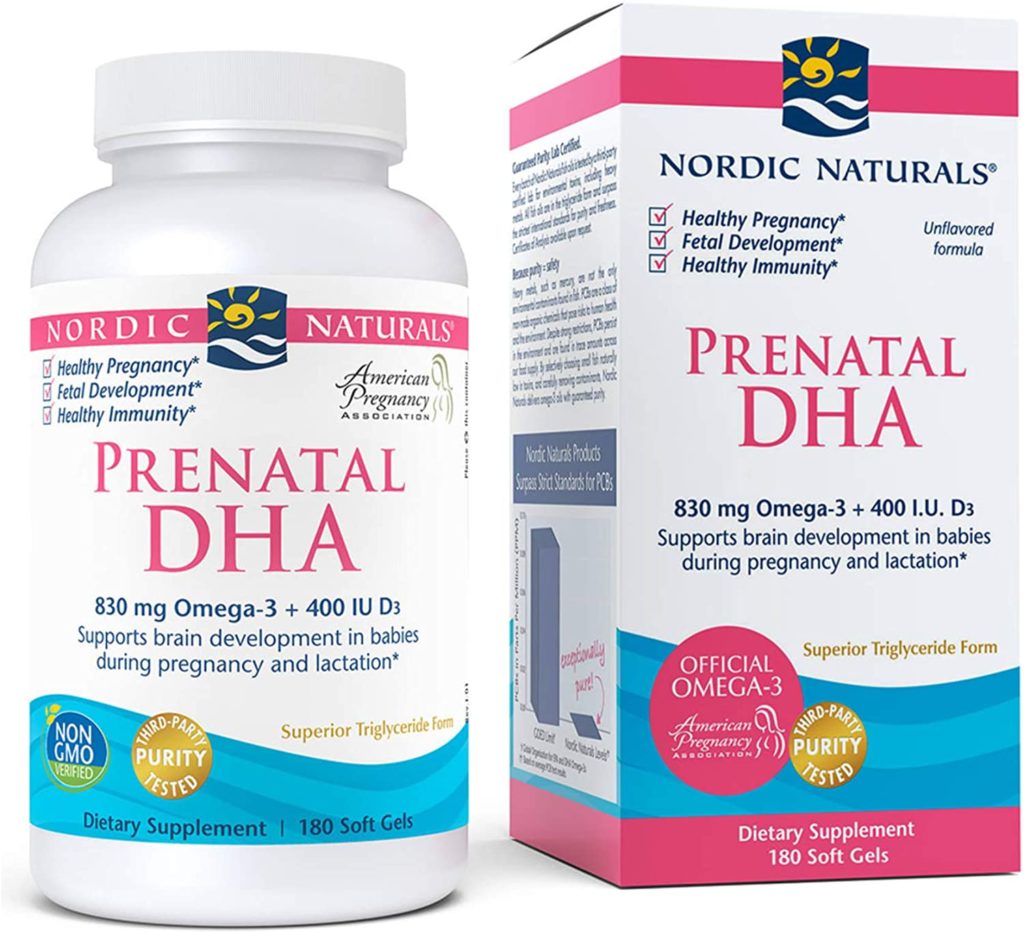
Calcium: Since I eat very little dairy, I took a highly absorbable calcium supplement. It is critical to consume calcium and magnesium in appropriate ratios, so this tablet contains ideal amounts of both nutrients! I spread out the 3 tablets throughout the day – and always take calcium & iron supplements at different times because they block absorption of each other. Buy on Amazon: Standard Process Calcium Lactate
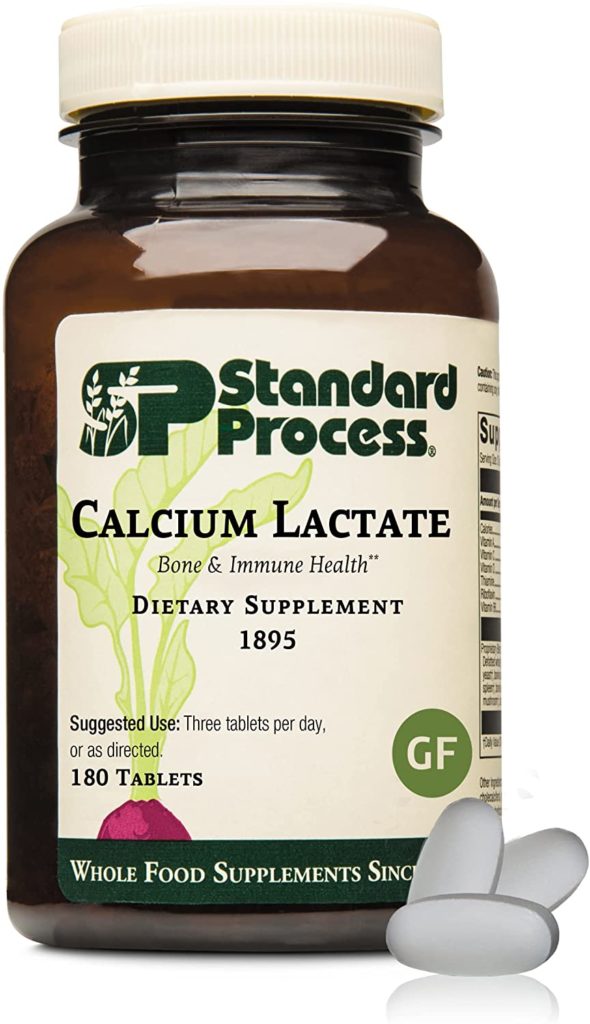
Iron: To supplement the iron in the prenatal vitamin, I took an extra iron supplement (2-3 times per week) to boost my iron levels, especially during the 3rd trimester, when the baby’s iron requirements are the greatest. This tablet is perfectly balanced with all the nutrients to prevent anemia, including vitamin B12, folate, and vitamin C to facilitate absorption. Buy on Amazon: Mega Food Blood Builder
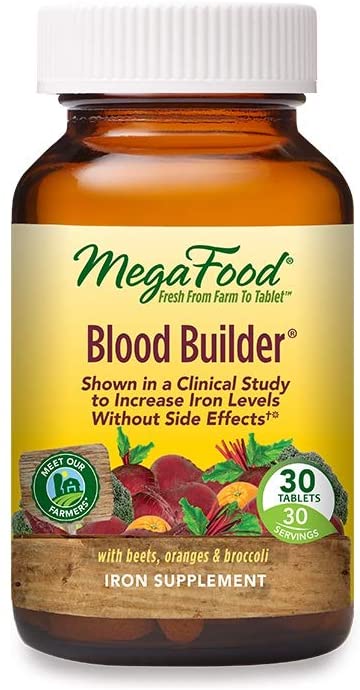
Prenatal Probiotic: If you’re not a fan of probiotic foods or struggle to incorporate them, a supplement is helpful. I took one bottle during my 1st trimester and one bottle during my 3rd trimester, and I intentionally ate probiotic-rich foods (sauerkraut, coconut yogurt, whole milk yogurt) throughout the entire pregnancy. As with the omega 3 supplement, this is beneficial during pregnancy as well as breastfeeding. Buy on Amazon: Prenatal Probiotic
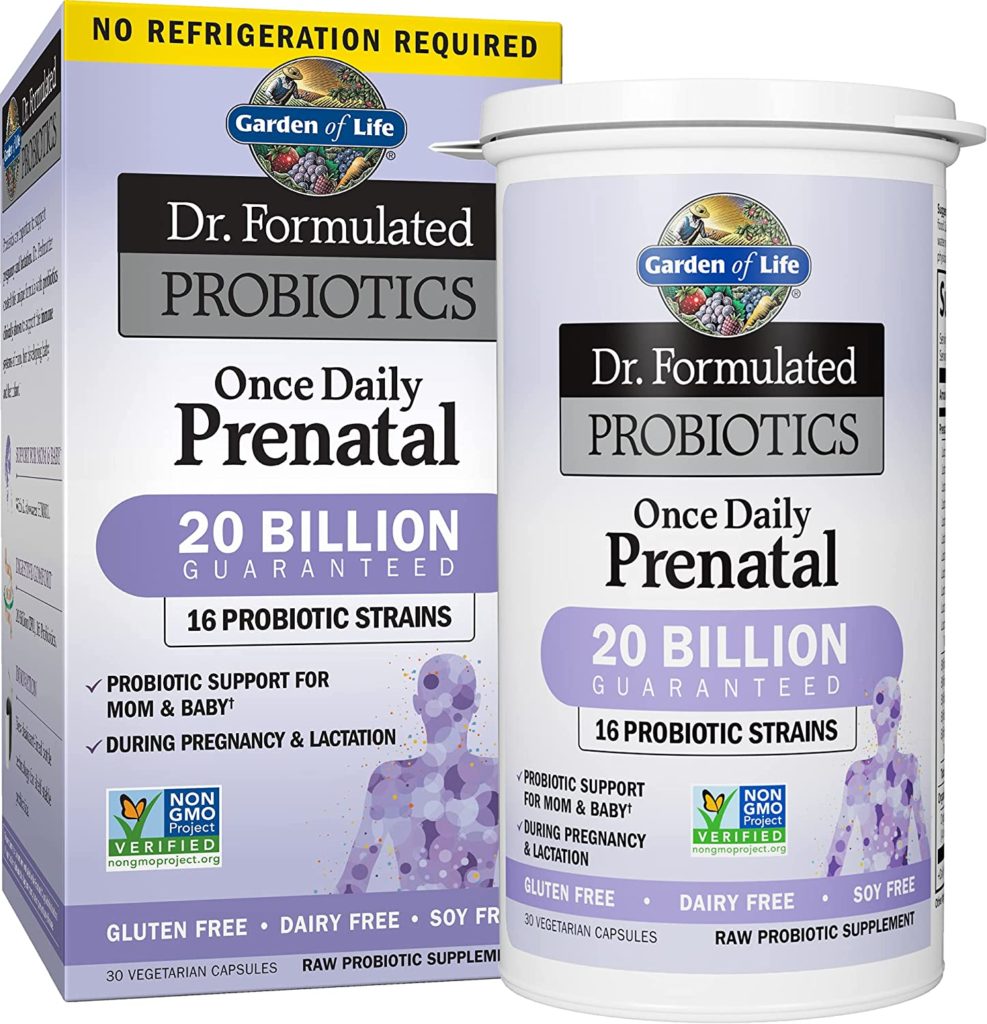
Stress reduction practices: As you can imagine, the mother’s stress negatively impacts the developing baby in many ways. Maternal stress is also correlated with pre-term delivery, so anything that can lower stress is extremely beneficial for baby! This can include a relaxing bedtime routine, avoiding stressful situations, deep breathing practices, or gentle exercise.
Some of my personal routines included prayer time in the evenings and taking a power nap as soon as I put my 2 year old down for his afternoon nap.
In the 3rd Trimester: Prepare Your Body
- Eat dates! Munching on these sweet little fruits at the end of pregnancy is associated with a more efficient and shorter labor. There is a plethora of fascinating information and science behind this strategy: Dates During Pregnancy
- Drink Red Raspberry Leaf Tea – This herbal tea strengthens and tones the uterine wall, reduces pain during and after birth, helps to balance postpartum hormones, and provides a mineral-rich supplement for breastfeeding moms. Learn more here: Red Raspberry Leaf Tea
- Eat pineapple – This strategy has less rigorous evidence to support it than the previous two, but is still beneficial since it is packed with vitamin C and the anti-inflammatory enzyme, bromelain!
After Birth: Rest & Nourish!
Rest, rest rest!!! For the first 24 hours after giving birth, I stayed in the hospital bed and rested as much as possible – and I felt GREAT. When I got home, I rested as much as I could, but life with a 2-year old is not conducive to sitting! I regressed a little bit but I’ve been intentional about resting throughout the day (when two young children are miraculously napping at the same time).
After my first pregnancy, it took me weeks to recover – I was sore, aching, tired, and physically miserable. I was not aware of the importance of products that could help with the recovery process and I only had the sample products given to me at the hospital. However, I skimmed the ingredients and amidst my pain, I was hesitant to use them because of the questionable ingredients that I would otherwise avoid in personal care products.
This time around, I was proactive and invested in these all-natural alternatives – and it made all the difference in the world!!!!
- Afterease Herbal Tincture – after birth, the uterus contracts in order to shrink itself back to its pre-pregnancy size. In second-time moms, these contractions (afterbirth pains) are especially intense and are most prominent during breastfeeding. This “Afterease” tincture is mixed with water and consumed to calm these pains. During the first 2-4 days postpartum, this was a total life-saver and I would highly recommend it to all moms, especially for subsequent pregnancies!!
- Organic Nipple Balm – an alternative to lanolin-based creams, which often contain significant levels of pesticides, this nipple balm provided more relief than anything else I’ve used. Several different brands offer organic nipple balm, and it’s definitely worth it!
- Perineal Spray – the key ingredient here is witch hazel. Witch hazel is an all-natural astringent which alleviates hemorrhoids after delivery and provides soothing relief of all pain resulting from tears and strains. The witch hazel pads provided by the hospital contained a ton of preservatives and chemicals that I simply didn’t feel comfortable using on my body – but this spray worked perfectly!
Postpartum Nutrition: It is important to get plenty of healthy fats & protein after giving birth to facilitate healing. This blog post is the nutrition guidance that I used during my postpartum recovery so I’m going to share it directly from the source! Link: 3 Ways to Nourish a New Mom
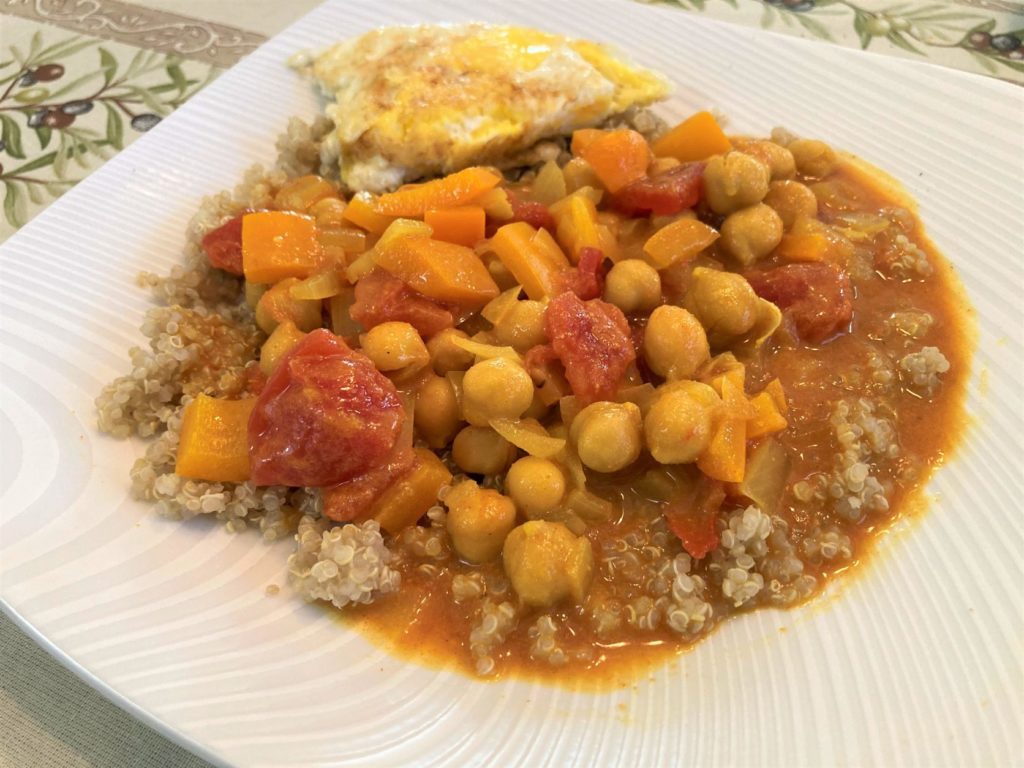
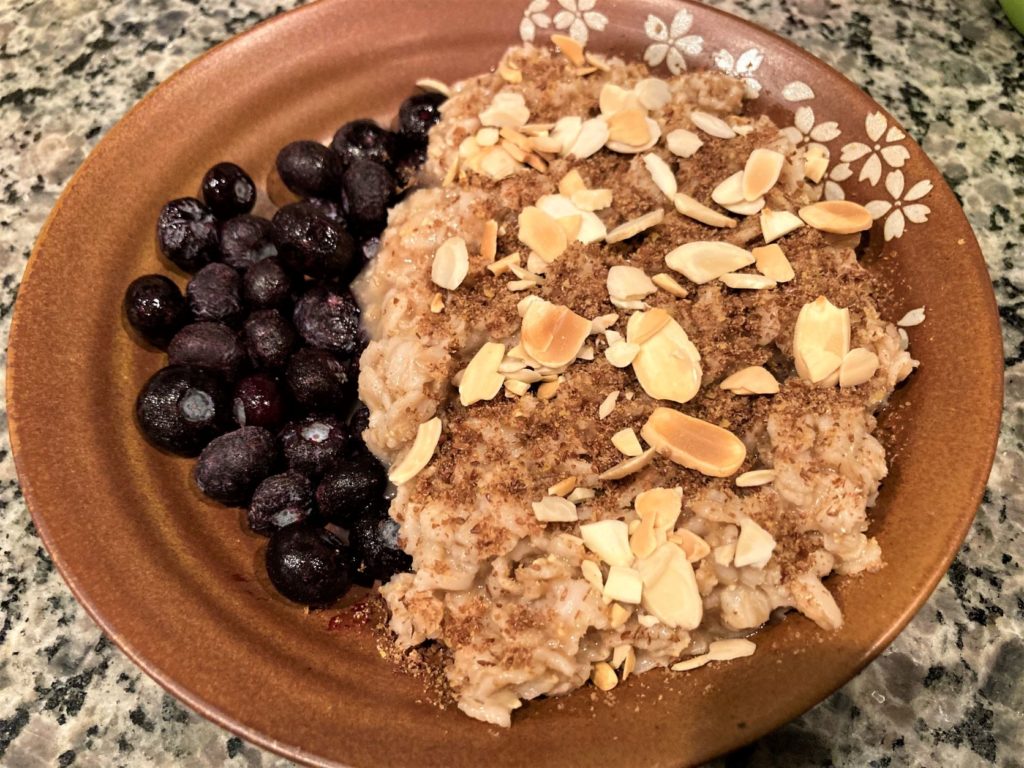
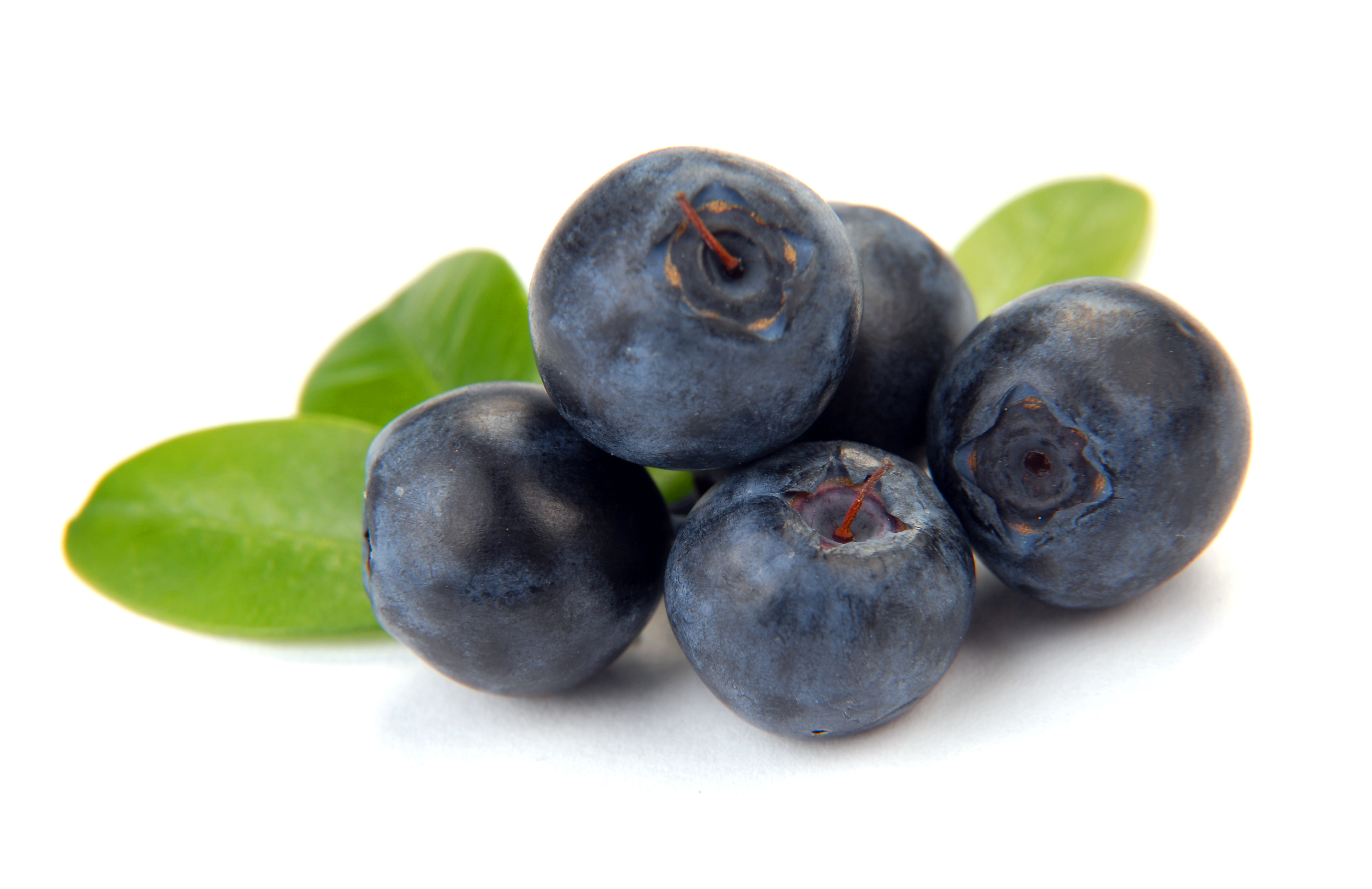
Congratulations on the new baby!! So happy for you!
This entry is so helpful. I wish I had it during my second pregnancy (she just turned 2 months old), but I will definitely save this for future reference! I took a prenatal vitamin, but it’s always a struggle for me to know which is best and if I should supplement with other things as well. You have great tips as always!
I hope you are enjoying this new journey as a mom of 2!
Kelsey-Ann, I’m so glad you enjoyed this post! And congratulations on your 2nd little girl as well!! I’ve definitely been enjoying the experience so far – quite challenging to juggle the two boys, but definitely worth it 😉